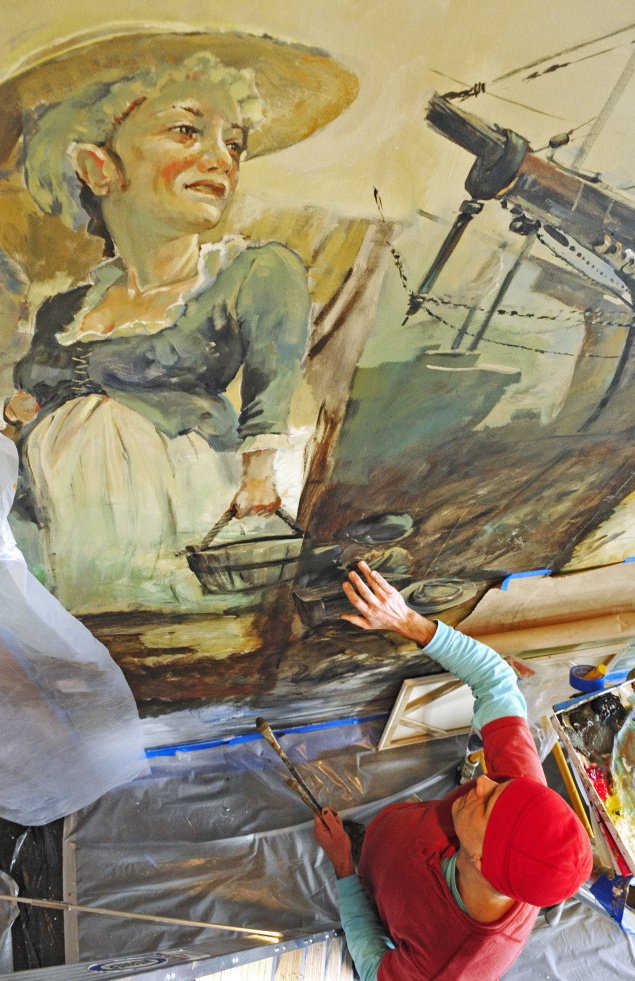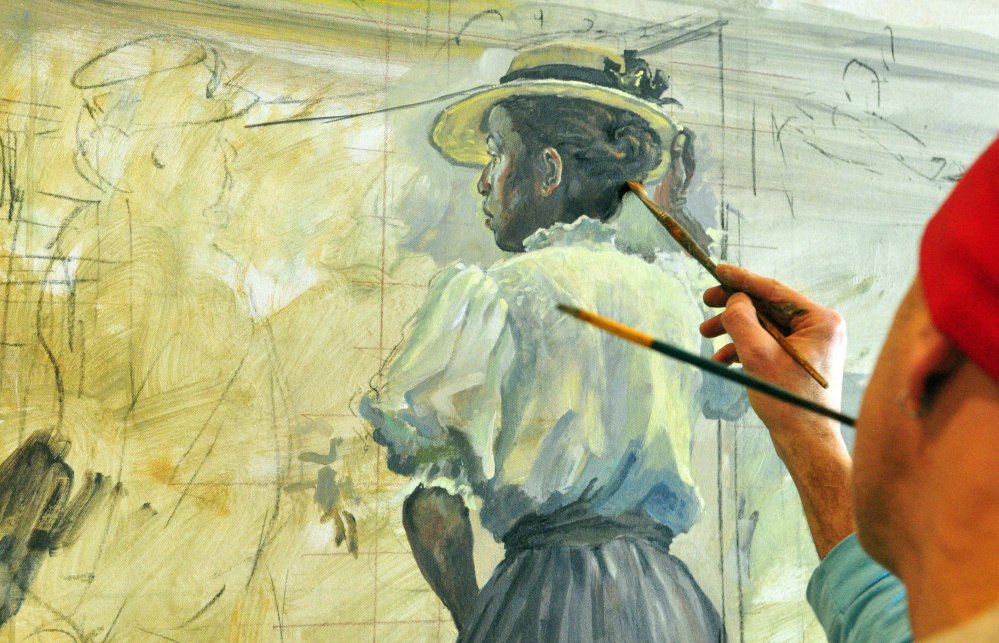Of the 300 or so state commissions and boards, it might seem like filling seats on the Maine Arts Commission would be easy.
Yet seats on the arts agency, which administers about $500,000 in grants annually to artists and arts organizations statewide, go unfilled so often that the director has asked the Legislature to reduce the size of the commission, from a maximum of 21 members to 15.
The change, proposed by the commission’s executive director, Julie Richard, would improve the agency’s ability to make grants and manage other programs that affect artists, educators and communities in Maine, she said.
Richard asked Rep. Phyllis Ginzler, R-Bridgton, a retired sales executive with a history of serving on the boards of community organizations, to sponsor the bill.
Current state law requires “not less than 15 members nor more than 21 members,” though the commission has had just 11 members since July. The bill proposes changing that language to “not more than 15 members.”
“I couldn’t imagine a board being effective with (21) members,” Ginzler said. “As a matter of fact, I think 15 is quite a number. It makes sense to cap the number of board members at 15, so I based it on my own experience at having been on a variety of different boards and trying to get things done.”
The proposal faces some opposition. Ginzler said she’s heard mostly positive feedback, but some artists and arts administrators have expressed concern to her that reducing the size of the commission and eliminating a requirement for minimum membership would make it less effective because it could consolidate power and reduce diversity.
Several arts administrators contacted by the Portland Press Herald to comment for this story declined to speak on the record, because they apply for grants from the Maine Arts Commission and do not want to talk publicly about the commission’s business.
Kate Beever, a music therapist and commission member, said that “as an individual involved in arts advocacy, I’d say that I’d prefer having a larger, diverse board representative of the arts community.” She noted that she was not speaking for the commission but as an artist. As a commission member, she understands the current challenges of meeting a quorum to get things done.
Charles Stanhope, the board’s chairman, said the bill would help the commission improve its business practices, processes and procedures. Adding members has been challenging.
“People have been suggested to us and we have pursued them, and either they have not been interested or the approval process just took too long,” he said. “There are a lot of hurdles that the state has put in place. We respect those, but it makes it hard for us to fill our seats.”
The bill has been referred to the Education and Cultural Affairs Committee, of which Ginzler is a member. A committee hearing has not been scheduled.
Richard said it has been challenging to find people willing to serve in the volunteer positions. The Governor’s Office’s Department of Boards and Commissions vets potential members to state boards and commissions, and the process can take months.
“As time passed, it just got difficult to find people who would actually rise to the standards set by Office of Commissions and Boards,” she said.
The commission hasn’t had to cancel a meeting because it lacked a quorum, but it’s been close, Richard said. Ideally, she would like to have 15 members consistently, to ensure a range of opinions and expertise. The commission meets quarterly.
Bob Keyes can be contacted at 791-6457 or at:
bkeyes@pressherald.com
Twitter: pphbkeyes
Send questions/comments to the editors.





Success. Please wait for the page to reload. If the page does not reload within 5 seconds, please refresh the page.
Enter your email and password to access comments.
Hi, to comment on stories you must . This profile is in addition to your subscription and website login.
Already have a commenting profile? .
Invalid username/password.
Please check your email to confirm and complete your registration.
Only subscribers are eligible to post comments. Please subscribe or login first for digital access. Here’s why.
Use the form below to reset your password. When you've submitted your account email, we will send an email with a reset code.